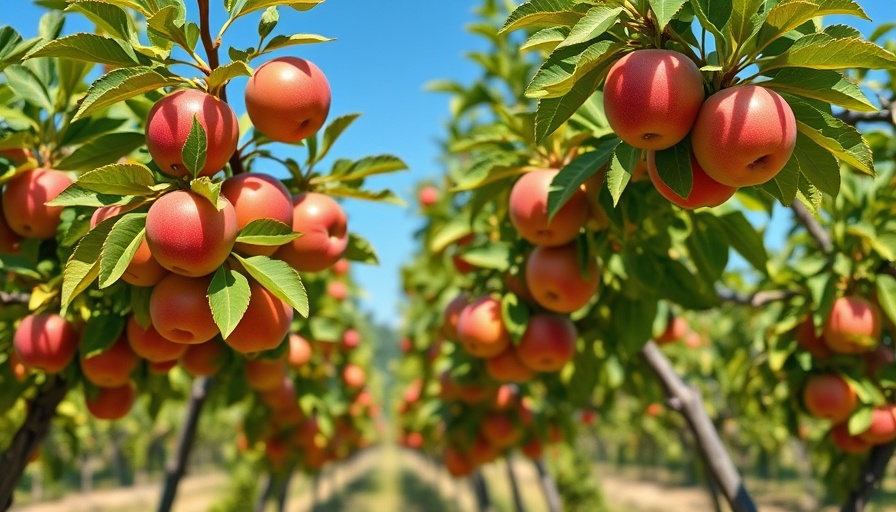
The Growing Dilemma: Chemical Drift in Agriculture
As farmers and growers face increasing challenges to maintain crop yields amidst environmental and regulatory pressures, a troubling issue has emerged in the Dutch agricultural landscape: the chemical drift seen in fruit orchards caused by herbicides used in nearby potato farming. Recent reports from the Dutch Fruit Growers Organization (NFO) have highlighted the adverse effects of the herbicide Spotlight, which is utilized to defoliate potato crops. This situation presents a complex dilemma, balancing crop protection with the health of neighboring plants.
Understanding Chemical Drift: A Serious Concern for Fruittelers
The drift of agricultural chemicals has significant implications. As John Kusters, chairman of the NFO notes, the damage manifests as unsightly spots on apples and pears. This poses a double challenge for farmers: not only is their yield affected, but the quality of their products is compromised just as they prepare for harvest. The recent season saw optimal growth for many fruit crops, adding urgency to the situation. Farmers must now navigate the delicate balance of agricultural cooperation to prevent further incidents.
Common Practices and Responsible Use of Herbicides
In light of these reports, the NFO is not assigning blame but rather encouraging potato growers to reconsider their spraying practices, especially under windy conditions that can exacerbate drift. Responsible usage of chemicals is paramount in protecting the integrity of fruit crops. As farmers, community engagement and cohabitation strategies between different types of agronomy are critical to mitigate risks associated with drift.
Addressing Environmental and Economic Health
The environmental implications of fungicides and herbicides cannot be overstated. While these chemicals serve vital roles in ensuring crop yields, their unintended consequences can lead to economic distress among growers. Addressing these challenges requires a commitment to innovation and collaboration across agricultural sectors. Shared insights into practices that deter drift could foster a more sustainable farming environment.
Innovative Solutions in Agricultural Practices
As farmers continue to adapt to new agricultural challenges including climate change and stricter regulations, innovative practices must take center stage. Integrated Pest Management (IPM) plays a significant role in reducing reliance on chemical inputs. Farmers might explore bio-based alternatives and precision agriculture techniques that promote efficiency without compromising safety.
The Road Ahead: Building Partnerships for Sustainable Agriculture
Moving forward, building strong partnerships among agriculturalists will not only address the issue of chemical drift but also reinforce the foundation of sustainable agricultural practices. Developments in technology, such as drone surveillance for monitoring and precision application technologies, present new avenues for reducing chemical misuse.
Call to Action: Collaborate for the Future of Farming
In conclusion, as we consider the implications of chemical drift on fruit production, collaboration within the agricultural community is essential. Farmers must engage in dialogue, share their experiences, and adopt best practices to ensure the prosperity of all. By taking collective action, they can safeguard both their crops and their livelihoods.
 Rij toevoegen
Rij toevoegen






Write A Comment